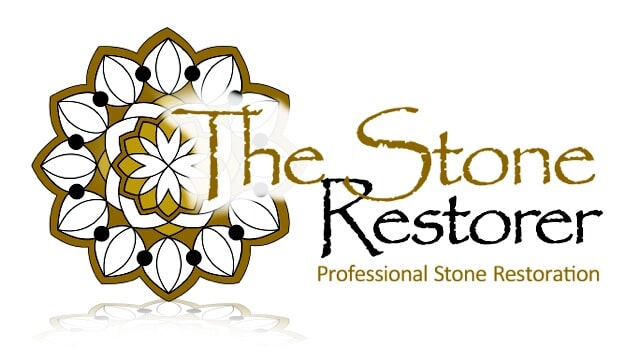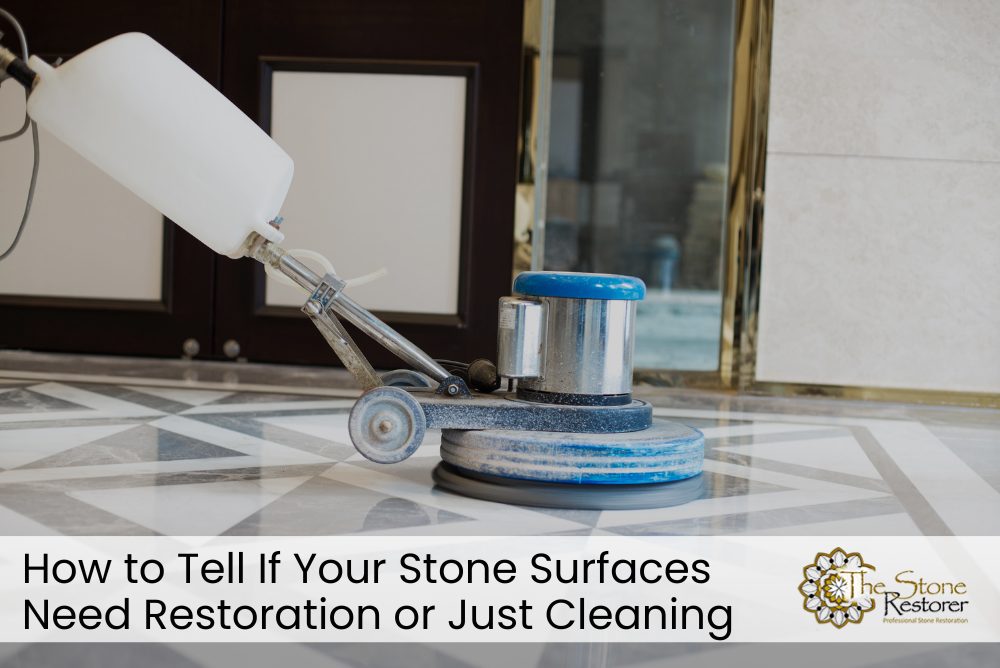Natural stone is a standout feature in many Aussie homes and businesses. Whether it’s marble benchtops, granite floors or limestone pavers, stone surfaces bring a sense of class and value. But without proper care, that investment can fade fast. Scratches, stains, etching and dullness don’t just hurt the look of your stone — they also lower your property’s worth.
If you’ve invested in stone restoration or installed high-end natural stone, then you’ll want to protect it for the long haul. This is where professional care steps in. Done right, it’s not just cleaning — it’s a strategy that keeps your stone strong, beautiful and long-lasting.
The Real Value of Natural Stone
Natural stone surfaces like granite, marble, travertine and limestone are chosen for their look, durability and timeless appeal. But they’re also porous, meaning they absorb liquids and can stain easily. Unlike tiles or timber, stone needs specific treatments to keep its condition.
Every type of stone reacts differently to spills, moisture and wear. One-size-fits-all cleaning can do more harm than good. That’s why trained pros are key. They know what each surface needs and how to bring out the best in it.
After all, your stone isn’t just a feature — it’s an investment. One that can pay off with higher property value and less need for repairs if you care for it properly.
Why Stone Needs More Than a Mop
Many people think regular cleaning is enough. But everyday products can damage stone. Acidic cleaners, bleach and even vinegar can etch or dull the surface. Once the damage is done, it’s not easy to fix without grinding or polishing.
This is why professional cleaning is necessary for natural limestone tiles, for example, which are especially soft and prone to erosion if not handled right. What seems like a quick DIY job can lead to permanent marks.
Professionals use pH-neutral products and specialised tools. They also look at foot traffic, weather exposure and previous treatments to decide the right method. This means you get results without risking damage.
Sealing: The First Line of Defence
Natural stone is strong, but not invincible. Water, oil, wine, and even dirt can seep into unsealed surfaces and leave stains that won’t budge. Sealing is a must for long-term protection, especially in wet areas like kitchens and bathrooms.
Professional stone sealing for long-term protection helps prevent these issues. Pros know when and how to apply sealers. They’ll choose between penetrating sealers for porous stone or surface sealers that add a barrier. The right sealant also makes cleaning easier down the track.
Think of sealing as an insurance policy. It’s one of the simplest ways to extend your stone’s life and maintain its natural beauty without costly restoration later.
Busting the Myths Around Stone Care
Stone is tough, right? Many assume once it’s installed, it takes care of itself. Not quite. There are many common myths about stone restoration experts have busted, and they usually end in costly mistakes.
One myth is that all stone is stain-proof. While it may resist some spills, most stone is porous and vulnerable. Another is that polishing can fix anything. In truth, if etching has gone deep, polishing might not be enough.
Professionals don’t just polish — they assess, repair, seal and maintain. Their goal is to keep your stone in top shape with less effort and lower costs over time. Knowing the truth helps avoid damage and get better results.
The Role of Regular Maintenance Plans
Professional stone care isn’t a one-time thing. Like a car or aircon unit, your stone surfaces benefit from routine checks. This includes re-sealing, stain removal, and periodic polishing to prevent wear from building up.
A scheduled maintenance plan saves money in the long run. It catches issues before they spread, keeps your stone looking sharp, and reduces the need for deep restoration. Many Australian businesses now book quarterly or annual servicing to keep floors and benchtops looking fresh.
This proactive approach is growing fast — especially in commercial settings where first impressions matter. From hotels to office lobbies, well-maintained stone adds trust, professionalism and style.
Case Study: A Brisbane Home Gets a Marble Makeover
A Brisbane homeowner had a marble kitchen benchtop installed ten years ago. It had yellowed over time, developed stains from wine and lemon juice, and lost its shine. Instead of replacing it, they called a professional stone care team.
The experts deep-cleaned, honed and polished the marble, then applied a high-grade penetrating sealer. Not only was the stone restored, but it looked better than when it was first installed. The result? A refreshed kitchen, better property value and no need for costly replacement.
This case proves the power of expert care. With the right approach, even aged stone can shine again.
How Weather Impacts Outdoor Stone
In Australia, we get everything — blazing sun, sudden rain, salty sea air. Outdoor stone like pavers or pool surrounds cop the lot. Over time, UV rays, moss, mould and moisture wear down the surface. This leads to cracks, crumbling edges and discolouration.
Professional care includes proper cleaning, sealing, and sometimes re-finishing to deal with weather damage. If left untreated, outdoor stone becomes unsafe, slippery and ugly.
This is especially true for limestone and sandstone, which are softer and more absorbent. Having a pro inspect and treat outdoor stone is key to keeping patios, paths and pools in great shape year-round.
Future-Proofing: How Modern Techniques Help
Stone care isn’t stuck in the past. New technologies like diamond polishing, nano-sealers and dust-free grinding have lifted the game. These methods provide faster, safer and cleaner results.
Eco-friendly products are also on the rise. More stone care pros are ditching harsh chemicals for green options that are safer for homes and the planet.
Digital tools also allow pros to track maintenance history, map out wear patterns and tailor services based on usage. It’s no longer just about cleaning — it’s about smart, personalised care.
As homeowners get more design-savvy, the demand for skilled stone care is only going up. Expect more tech, better products and higher standards across the board.
FAQs
1) How often should I seal natural stone surfaces?
Stone sealing frequency depends on the type of stone and where it’s used. As a rule of thumb, high-traffic areas like kitchen benchtops or entryways should be sealed every 1–2 years. Outdoor stone may need it more often due to weather exposure. However, not all stone is equal. Granite holds up longer between seals, while limestone needs more frequent attention due to its porous nature. Professionals often test the surface to check how much moisture it absorbs, then recommend a schedule based on that. Skipping sealant leads to stains, moisture damage and costly restoration, so it’s better to stay ahead with regular sealing.
2) Can professional stone care remove all stains?
Not always. Some deep stains that have penetrated unsealed stone may leave marks even after professional treatment. However, expert cleaners have advanced tools and techniques to tackle most stains effectively. Poulticing, honing and targeted spot treatments are common. Organic stains like wine, coffee and oil are usually removable. But older stains or chemical burns might only fade, not vanish entirely. The sooner a stain is treated, the better the outcome. That’s why routine care and sealing matter — they prevent stains from becoming permanent in the first place.
3) Is professional stone care worth the cost?
Yes — especially when you consider the long-term savings. Replacing damaged stone can cost thousands. Restoration is often cheaper but still more expensive than regular maintenance. Professional care protects against wear, reduces the risk of damage and keeps your stone looking high-end. It also adds value to your home, which matters if you’re planning to sell or renovate. In most cases, a simple clean-and-seal session once a year is enough to keep your stone looking great. Compared to major repairs, that’s a smart investment.
4) What’s the difference between DIY and professional stone care?
DIY methods might work for light cleaning, but they often fall short when it comes to deep restoration, polishing or sealing. Many household cleaners are too acidic or abrasive, and using them can scratch, etch or dull stone. Professionals use pH-balanced solutions, specialised tools and industry-grade sealers. They also understand the different properties of marble, granite, limestone and more. This knowledge ensures they treat each stone properly. When you hire pros, you get the benefit of experience, quality workmanship and peace of mind that the job’s done right.
5) Can stone care improve property value?
Absolutely. Well-maintained stone surfaces are a big plus for buyers and renters. They signal quality, care and style. In kitchens and bathrooms, polished stone benchtops stand out and give a space a modern edge. Outdoor stonework in top shape boosts curb appeal. Even in commercial settings, clean and gleaming stone floors build trust with customers. Regular stone care shows the property has been looked after, which can lead to better sale prices or leasing terms. It’s a detail that pays off big.
Ready to Protect Your Stone Investment?
Professional stone care isn’t just about cleaning. It’s about long-term protection, smarter maintenance and real savings. As natural stone grows in popularity across Australia, the need for proper care is only going to increase. Whether it’s in your home, office or outdoor space, your stone deserves more than a quick wipe-down.
A trusted pro brings the right tools, experience and knowledge to keep your surfaces strong and stunning. Don’t wait for stains or cracks to take hold. Regular maintenance today means fewer headaches tomorrow. Visit The Stone Restorer and find the team that understands your stone — and how to keep it shining for years to come.
Give us a call today at 0414 469 301 or ask us for a fast free quote on your tile cleaning or restoration project






